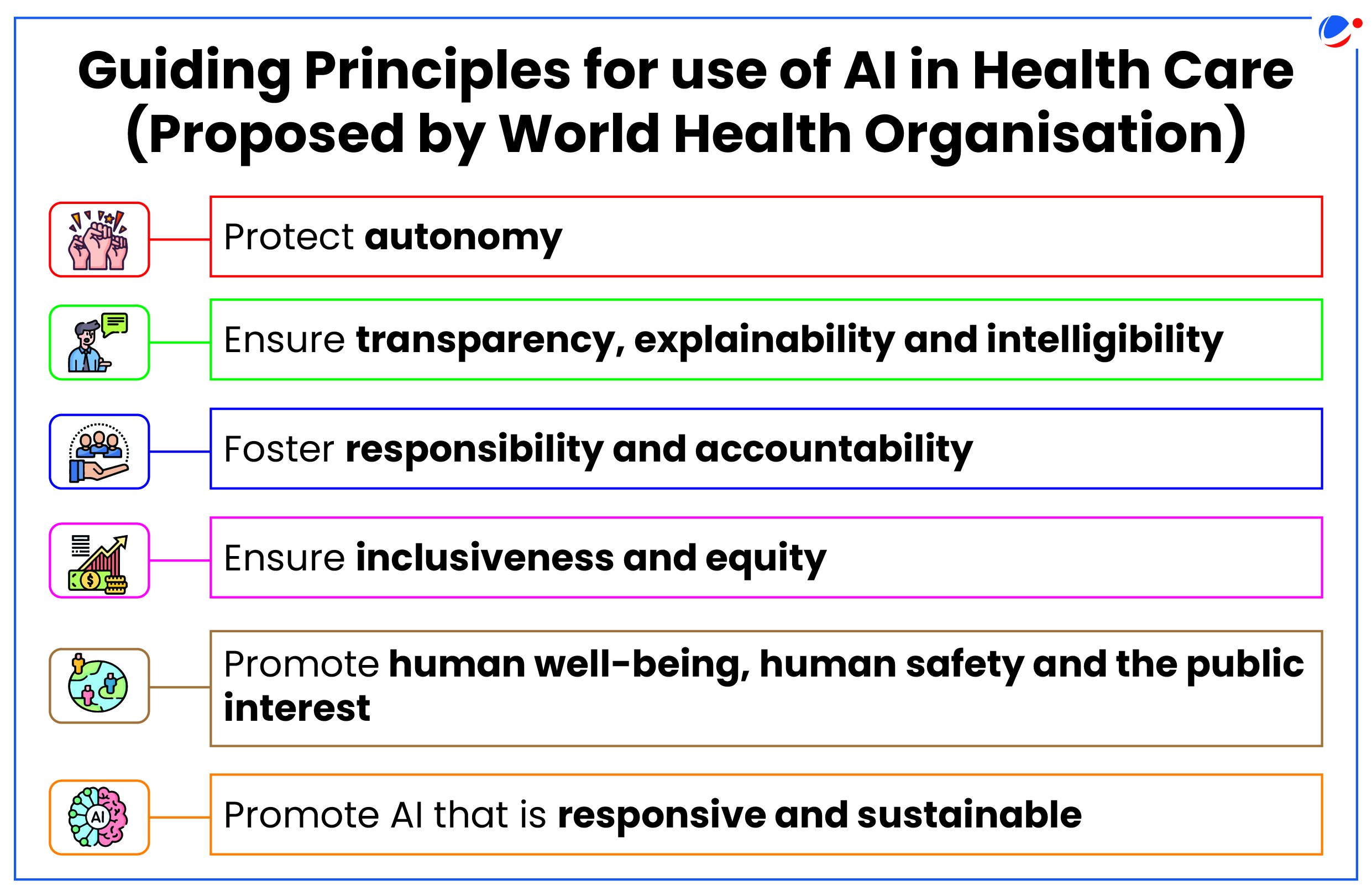Why in the News?
World Health Organization unveiled a digital health promoter prototype S.A.R.A.H harnessing generative Artificial Intelligence (AI) for public health.
About S.A.R.A.H.
- It is a Smart AI Resource Assistant for Health which uses new language models and cutting-edge technology.
- It can provide information across major health topics, including healthy habits and mental health.
- It aims to provide an additional tool for people to realize their rights vis-a-vis health.
- It can support people in developing better understanding of risk factors for some leading causes of death. E.g., cancer, heart disease, lung disease, and diabetes.
Developments in the sphere of AI Health Care In India
|
Potential of AI in Health Care
- Diagnosis and Treatment Planning: AI can be used to analyze imaging (such as X-rays), help doctors identify diseases and plan treatment more effectively.
- E.g., Apollo hospitals launched Apollo Clinical Intelligence Engine, a clinical decision support (CDS).
- Predictive Analytics: Electronic health records and other patient data can be analyzed by AI to predict which patients are at risk of developing certain conditions.
- Clinical research and discovery: AI can be used to examine data on drug interactions and side effects, as well as to predict which compounds will be most effective in treating certain conditions.
- E.g. ProteinSGM, a Generative AI model from the University of Toronto is used for protein designing.
- Robotic Surgery: AI integrated Robot surgeries will minimize surgery-related complications and can assist doctors in precision oriented tasks.
- Workforce optimization: Workflows automated with AI capabilities can help extend scarce labor resources, reduce work fatigue and burnout, and enable operational and cost efficiencies.
- It can also be used to automate routine administrative tasks, such as scheduling appointments and processing insurance claims. E.g. Virtual Assistants and Chatbots
- Healthcare supply chain resilience: Predictive models driven by data provide longitudinal visibility of supply with real time information regarding shortages and surpluses.
Initiatives facilitating Integration of AI in Current Healthcare Ecosystem
|
Concerns Associated with AI in Health Care
- Data Privacy and Security: The use of AI in healthcare requires large amounts of patient data, which raises concerns about data privacy and security.
- Biasness: Biased result can be produced from AI based healthcare models if they are not trained by data which represent wider section of the society. This may lead to inaccurate or unfair results, particularly for marginalized communities.
- Lack of Transparency: The internal workings of the AI Based model is not known by the user. Because of this property, AI models are considered "black boxes", making them less trustable.
- Regulation and Governance: Lack of clear regulations and guidelines for the use of AI in healthcare.
- This raises question who will take responsibility of any mistake committed by AI based system (E.g. any mistake committed by AI based robotic surgeon).
- Other: Equitable use (in the initial phase will be unaffordable for a lot of people), fear of job loss, etc.

Conclusion
AI has immense potential but it needs to be accompanied with adequate regulation and governance mechanism. In this regard, World Health Organisation has released guidance on the ethics and governance of AI for health.







